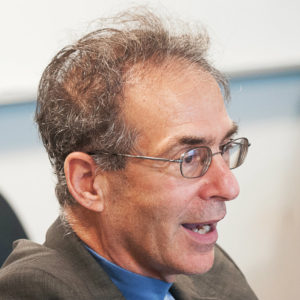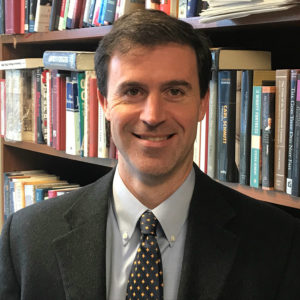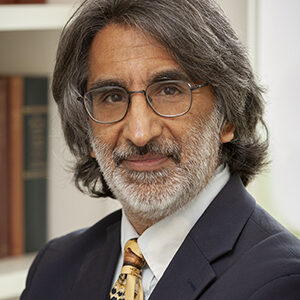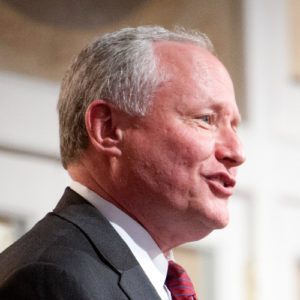The Words That Made Us
Revisit key constitutional questions through the lens of history and law.
JULY 12 – JULY 25, 2020
Washington, DC
Contrary to arguments that notions of state sovereignty have become outmoded, national identity has reasserted itself as a force in political life – from the election of Donald Trump in the United States, to the Brexit vote in Great Britain, to the rise of nationalist, anti-EU movements and governments in the nations of the European perimeter.
This two-week seminar will explore the idea of national identity and its role in maintaining a successful political order. In the first week, led by Professor James W. Ceaser, students will consider the question of American national character through a close reading of Alexis de Tocqueville’s Democracy in America. Over the second week, led by scholar Richard Reinsch, students will explore the ancient roots of nationalism and assess its utility in contemporary politics.
Image: Childe Hassam, Allied Flags, April 1917, 1917
James W. Ceaser on Tocqueville's World & Ours
This two-week course will take place in Washington, DC. It is a full-time commitment for Monday–Friday, with required sessions in the morning, afternoon, and some evenings.

James W. Ceaser is Harry F. Byrd Professor of Politics at the University of Virginia, where he has taught since 1976, and a senior fellow at the Hoover Institution. He has written several books on American politics and political thought, including Presidential Selection and Liberal Democracy and Political Science.

James W. Ceaser is Harry F. Byrd Professor of Politics at the University of Virginia, where he has taught since 1976, and a senior fellow at the Hoover Institution. He has written several books on American politics and political thought, including Presidential Selection, Liberal Democracy and Political Science, Reconstructing America, and Nature and History in American Political Development. He has also coauthored a series on American national elections since 1992, the most recent of which is entitled After Hope and Change: The 2012 Elections and American Politics.
Professor Ceaser has been a Fulbright teacher at the University of Florence and the University of Basel. He has held visiting professorships at Oxford University, the University of Bordeaux, Harvard University, Princeton University, and the University of Rennes. Professor Ceaser is a presidential appointee to the National Historical Publications and Records Commission. He is a frequent contributor to the popular press, and he often comments on American politics for Voice of America.
Professor Ceaser received his doctorate from Harvard University in the field of American politics.

Richard M. Reinsch II is Editor-in-Chief and Director of Publications at AIER. He is coauthor, with the late Peter A. Lawler, of A Constitution in Full: The Unwritten Foundation of American Liberty.

Richard M. Reinsch II is Editor-in-Chief and Director of Publications at AIER. He is a Senior Writer at Law & Liberty, a journal he founded and served as editor for 10 years.
He is coauthor, with the late Peter A. Lawler, of A Constitution in Full: The Unwritten Foundation of American Liberty. He is the author of Whittaker Chambers: The Spirit of a Counterrevolutionary (ISI Books, 2010), and is the editor of Seeking the Truth: An Orestes Brownson Anthology (Catholic University of America Press, 2016).
Richard’s writings have appeared in Perspectives on Political Science, National Affairs, American Affairs, The American Conservative, Modern Age, National Review Online, The Weekly Standard, and The University Bookman, among other publications. He received his law degree in 2004 from the University of North Carolina at Chapel Hill. He practiced law in securities and mergers & acquisitions until arriving at Liberty Fund.
RECOMMENDED READING
Tocqueville, The Great Thinkers. Page assignments are pegged to the translation by Harvey Mansfield and Delba Winthrop (University of Chicago Press, 2000).
READINGS:
Varieties of regimes under the modern condition of “democracy”
DISCUSSION QUESTIONS:
READINGS:
The maladies (dangerous tendencies) of democracy and some antidotes
DISCUSSION QUESTIONS:
READINGS:
The “causes” of societal forms
DISCUSSION QUESTIONS:
READINGS:
DISCUSSION QUESTIONS:
READINGS:
DISCUSSION QUESTIONS:
READINGS:
DISCUSSION QUESTIONS:
READINGS:
DISCUSSION QUESTIONS:
READINGS:
DISCUSSION QUESTIONS:
READINGS:
DISCUSSION QUESTIONS:
READINGS:
DISCUSSION QUESTIONS:

Akhil Reed Amar
Akhil Reed Amar is Sterling Professor of Law and Political Science at Yale University, where he teaches constitutional law in both Yale College and Yale Law School. He is Yale’s only currently active professor to have won the University’s unofficial triple crown — the Sterling Chair for scholarship, the DeVane Medal for teaching, and the Lamar Award for alumni service. He hosts a weekly podcast, Amarica’s Constitution.

Adam J. White
Adam J. White is the Laurence H. Silberman Chair in Constitutional Governance and senior fellow at the American Enterprise Institute, where he focuses on the Supreme Court and the administrative state. Concurrently, he codirects the Antonin Scalia Law School’s C. Boyden Gray Center for the Study of the Administrative State.

Diana Schaub
Diana Schaub is a nonresident senior fellow at the American Enterprise Institute (AEI), where her work is focused on American political thought and history, particularly Abraham Lincoln, Frederick Douglass, African American political thought, Montesquieu, and the relevance of core American ideals to contemporary challenges and debates. Concurrently, she is Professor Emerita of Political Science at Loyola University Maryland, where she taught for almost three decades.

Jenna Silber Storey
Jenna Silber Storey is a senior fellow in the Social, Cultural, and Constitutional Studies department at the American Enterprise Institute (AEI), and co-director of AEI’s Center for the Future of the American University. She is concurrently an SNF Agora Fellow at Johns Hopkins University, and a research fellow at the Civitas Institute at the University of Texas at Austin. She also serves on the executive committee of the Alliance for Civics in the Academy.

Vance Serchuk
Vance Serchuk is Executive Director of the KKR Global Institute and an Adjunct Senior Fellow at the Center for a New American Security. Prior to joining KKR, Mr. Serchuk served for six years as the senior national security advisor to Senator Joseph Lieberman (I-Connecticut).

William Kristol
William Kristol is editor at large of The Weekly Standard, which, together with Fred Barnes and John Podhoretz, he founded in 1995. Mr. Kristol has served as chief of staff to the Vice President of the United States and to the Secretary of Education. Before coming to Washington in 1985, Kristol taught politics at the University of Pennsylvania and Harvard’s Kennedy School of Government.

Ran Baratz
Ran Baratz, professor of ancient philosophy at Shalem College, teaches philosophy, history, and Zionist thought at a variety of other Israeli institutions as well. The executive director in Israel of the Tikvah Fund’s program in political thought, economics, and strategy, he is the founding editor of Mida, a new Hebrew-language website.

Daniel DiSalvo
Daniel DiSalvo is a Senior Fellow at the Manhattan Institute’s Center for State and Local Leadership and an Assistant Professor of Political Science at The City College of New York-CUNY. His scholarship focuses on American political parties, elections, labor unions, state government, and public policy.